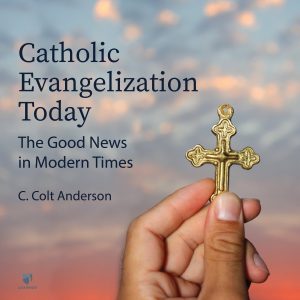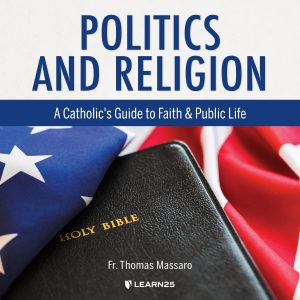Audio Sample:
If you wish to understand the intellectual history and trajectory of American conservatism, you are sure to enjoy this brilliant course by one of America’s leading conservative scholars.
Since the 1950s, economic conservatives have been in political alliance with social conservatives or traditionalists. That coalition has been a source of both strength and tension. Under the guidance of award-winning Professor Andrew E. Busch, you will first examine the distinctive features of economic and social conservatism before exploring the fascinating relationship between the two.
This course starts with the historical background of economic conservatism (“classical liberalism”). Economic collapse in the 1930s and the rise of the New Deal form the backdrop, and the thinking of figures such as Friedrich Hayek and Milton Friedman establish the intellectual foundation. You will see how the economic crisis of the 1970s breathed new life into free-market economics, how that revival took new forms, and how it was translated into polic
Audio Sample:
If you wish to understand the intellectual history and trajectory of American conservatism, you are sure to enjoy this brilliant course by one of America’s leading conservative scholars.
Since the 1950s, economic conservatives have been in political alliance with social conservatives or traditionalists. That coalition has been a source of both strength and tension. Under the guidance of award-winning Professor Andrew E. Busch, you will first examine the distinctive features of economic and social conservatism before exploring the fascinating relationship between the two.
This course starts with the historical background of economic conservatism (“classical liberalism”). Economic collapse in the 1930s and the rise of the New Deal form the backdrop, and the thinking of figures such as Friedrich Hayek and Milton Friedman establish the intellectual foundation. You will see how the economic crisis of the 1970s breathed new life into free-market economics, how that revival took new forms, and how it was translated into policy in the 1980s and beyond.
Next, you will consider the rise of Russell Kirk’s “traditionalism” in the 1950s and the mass-based social conservative movement of the late 1970s. You will then consider the ways economic and social conservatism both reinforce and work against each other. How have they worked together electorally and in concrete policy struggles, and when have they worked at cross-purposes?
After this thoughtful examination, you will conclude with a consideration of the future of the economic conservative–social conservative coalition.
Learn about downloadable programs.
Your Free Electronic Study Guide! When you order this course, we will send you a free electronic study guide that you can access in 3 convenient ways:
1) You can check your order confirmation email. It will include a link that enables you to download your guide.
2) The back of your program package also contains a copy of this link. You can access your guide by simply entering this URL into your browser.
3) Your case of CDs or DVDs will contain a copy of your electronic guide on CD. Simply insert this disc into your computer’s CD/DVD drive to access your guide.
$17.99




You must be logged in to post a review.
© 2021 Learn 25 | Privacy Policy | Terms of Use | MP3 Downloads | Customer Support
Stay in the know.
Enter your email address for a free coupon, and to find out about future specials and promotions. You may unsubscribe at any time.


In an effort to provide our customers the best possible experience, we have created a new website for you at Learn25.com to browse our selection of over 400 audio and video courses by top professors.
Reviews
There are no reviews yet.